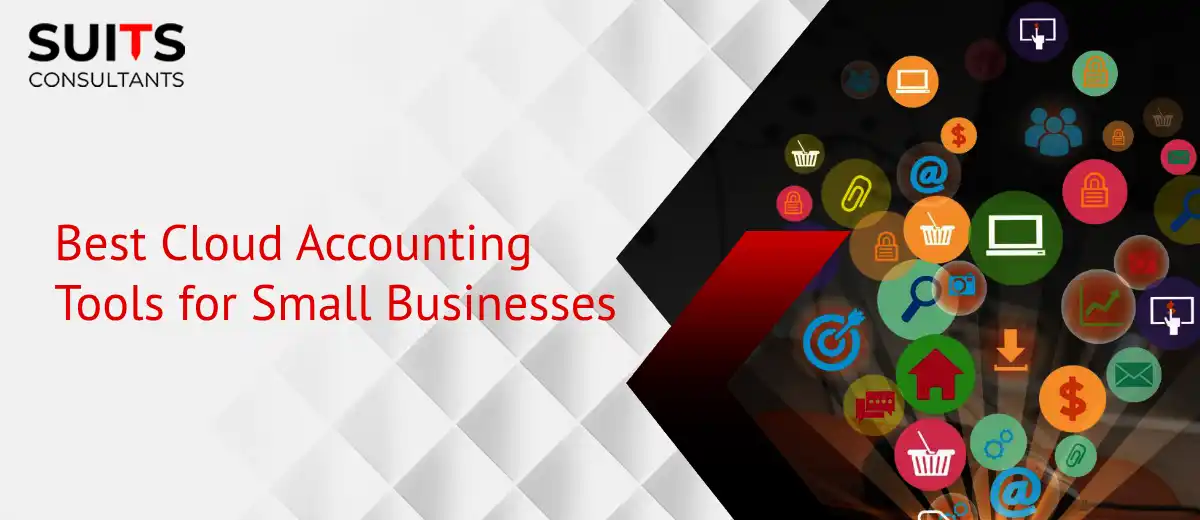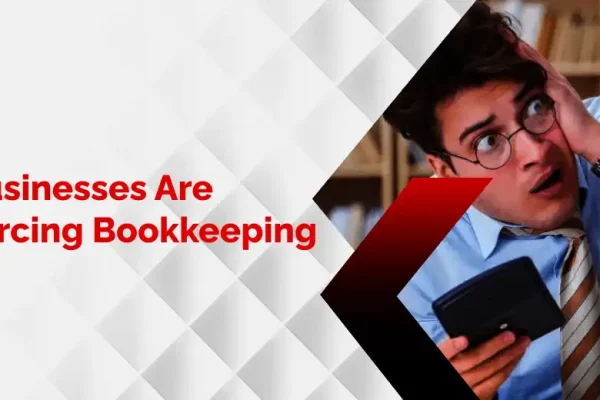Best Cloud Accounting Tools for Small Businesses [2025 Update]
Cloud accounting means using online software to handle your business finances, like tracking expenses, sending invoices, or managing payroll.
For small businesses, it saves time, cuts down on errors, and makes it easy to access your data from anywhere. It also helps you stay compliant and ready to grow.
In this guide, we’ll walk you through the best cloud accounting tools based on real user feedback, expert reviews, and hands-on testing—so you can find the one that fits your business best.
Overview Comparison Table of Top Tools
Here’s a quick comparison of the top cloud accounting tools for small businesses based on key features, pricing, and user ratings
| Tool | Best For | Key Features | Free Trial Available | Starting Price / Month | G2 Rating |
| QuickBooks | All-rounder | Invoicing, reporting, and payroll | Yes | Approximately $35 (rising to ~$38 in July 2025) | — |
| Xero | Integrations | Bank feeds, mobile apps, projects | Yes | From ~$2.90 / mo (Starter plan) | ~4.2–4.3 (approx) |
| FreshBooks | Freelancers | Time tracking, invoicing | Yes (30‑day) | From ~$19 / mo | 4.5 / 5 (650+ reviews) |
| Zoho Books | Indian SMBs | GST compliance, CRM integration | Yes (14‑day/free tier) | From ₹899/month (~USD 15) or free < $50K revenue | ~4.4 (estimated) |
| Wave | Free Use | Free accounting & invoicing | Yes (unlimited) | Free (core tools) | ~4.1 |
| Sage 50 | Desktop hybrid | Strong inventory & job costing tools | Yes | ~$50–61 per mo (≈$625/year) | — |
| Kashoo | Simplicity | One-click reporting, simple UI | Yes | ~$16.65 per mo (≈$199/year) | ~4.6 / 5 (50+ reviews) |
| FreeAgent | Microbusinesses | Project accounting, UK self‑assessment | Yes (30‑day) | ~$12–15 per mo (UK pricing) | ~4.3 / 5 (39 reviews) |
| Patriot | USA Payroll | Integrated payroll + accounting | Yes | ~$20 per mo | ~4.0 / 5 (estimated) |
| ZipBooks | Startups | Smart-dashboard, reports, CRM basics | Yes | Free starter or ~$15/mo | ~4.2 (estimated) |
Best Cloud Accounting Software for Small Businesses
The right accounting software can save you time, reduce stress, and help you stay on top of your finances. Here are some of the best tools for small businesses.
1. QuickBooks Online
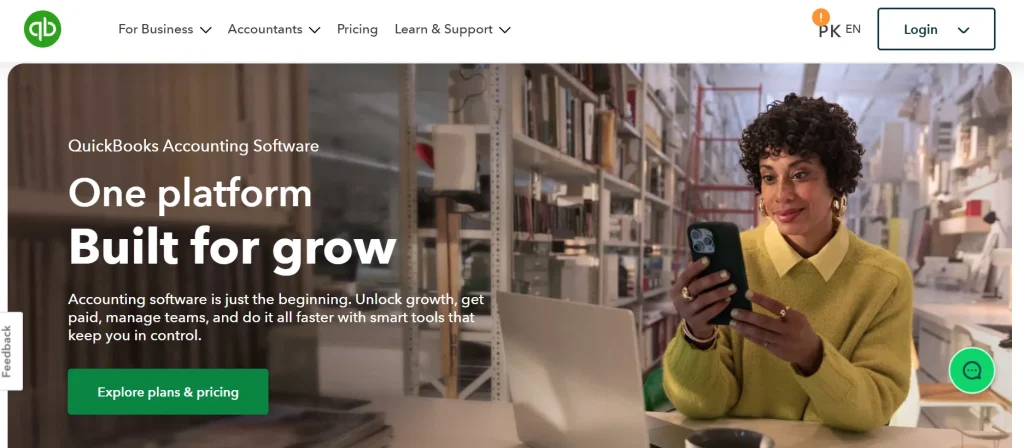
QuickBooks Online by Intuit is one of the most widely used cloud accounting platforms, offering robust features for small to medium-sized businesses across industries. It’s known for its reliability, strong reporting tools, and scalability.
Key Features:
- Double-entry accounting system
- Recurring invoices and payment reminders
- Payroll integration and tax estimates
- Real-time cash flow dashboard
- Works with 650+ third-party apps
Who It’s For: Small to medium businesses, agencies, and e-commerce stores.
Pros:
- Offers tiered plans based on needs
- User-friendly interface
- Widely accepted by accountants and CPAs
Cons:
- Pricing may be high for small startups
- Syncing delays can occur with some banks
Supporting Topics:
- Is QuickBooks worth it for solo entrepreneurs?
- QuickBooks vs QuickBooks Self-Employed
- Best QuickBooks integrations for Shopify and PayPal
2. Xero
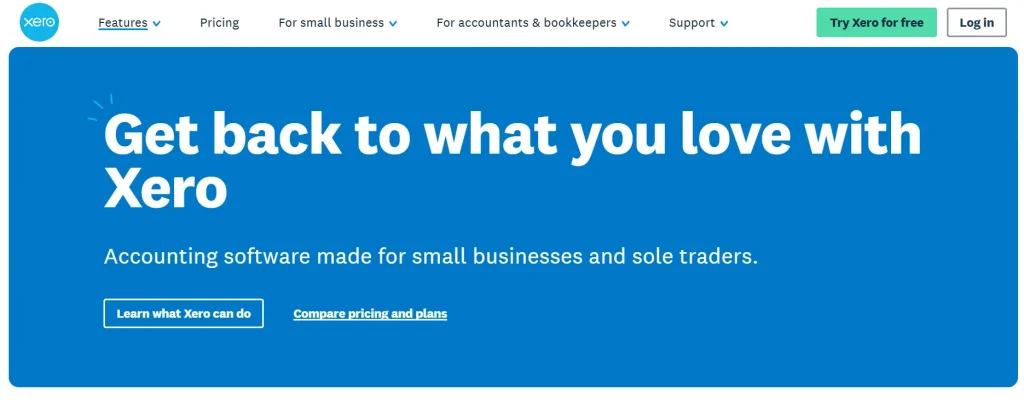
Xero is a cloud-based accounting platform designed for growing businesses and teams. It’s particularly popular for its unlimited user access and smooth integration with banks, apps, and financial tools.
Key Features:
- Unlimited users on every plan
- Smart bank reconciliation
- Project and inventory tracking
- Mobile-first bookkeeping
Who It’s For: Startups and growing teams that value collaboration and integration flexibility.
Pros:
- Modern, clean interface
- Extensive third-party app marketplace
Cons:
- Payroll is not supported in some regions
Supporting Topics:
- Xero vs QuickBooks: Which is better for syncing and reports?
- Xero for freelancers with global clients
3. FreshBooks
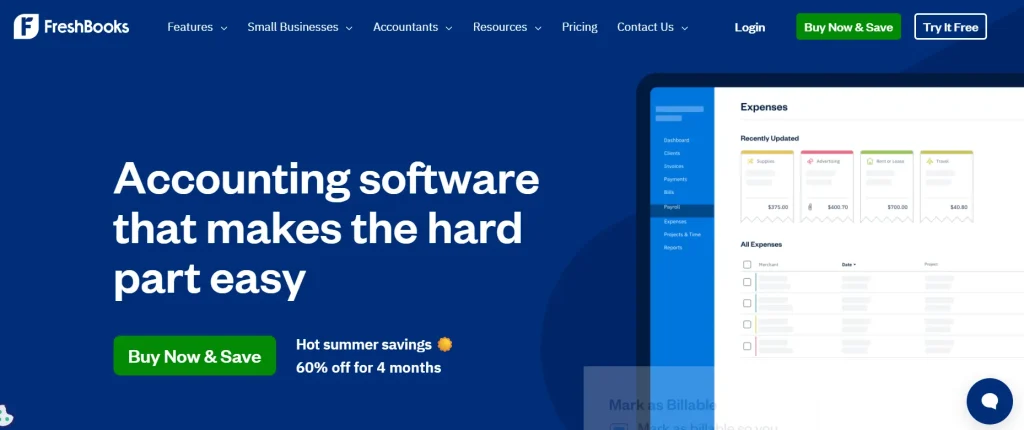
FreshBooks is a cloud accounting tool tailored for service-based professionals, especially freelancers and creatives. It offers intuitive time tracking, invoicing, and client communication features.
Key Features:
- Time and project tracking
- Automated recurring invoicing
- Built-in expense tracking
- Easy collaboration for teams
Who It’s For: Freelancers, service professionals, and creatives.
Pros:
- Intuitive user experience
- Branded client communication features
Cons:
- Limited double-entry accounting functions
Supporting Topics:
- Why FreshBooks is ideal for freelancers
- Accepted payment gateways in FreshBooks
4. Zoho Books
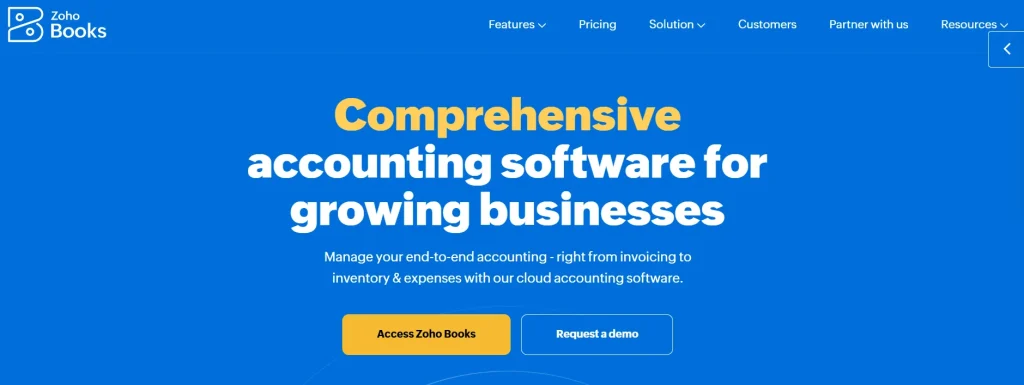
Zoho Books is part of the Zoho suite and offers comprehensive accounting tools, especially well-suited for Indian SMBs. It integrates seamlessly with other Zoho apps and supports automated workflows.
Key Features:
- GST-compliant invoicing
- Vendor and expense tracking
- Built-in CRM and Zoho suite integrations
- Automated workflows and payment follow-ups
Who It’s For: Businesses in India or those using other Zoho apps.
Pros:
- Free plan available for businesses under the revenue threshold
- Seamless integration within the Zoho ecosystem
Cons:
- Slight learning curve for beginners
Supporting Topics:
- Zoho Books vs Zoho Invoice
- Automation capabilities within Zoho Books
5. Wave
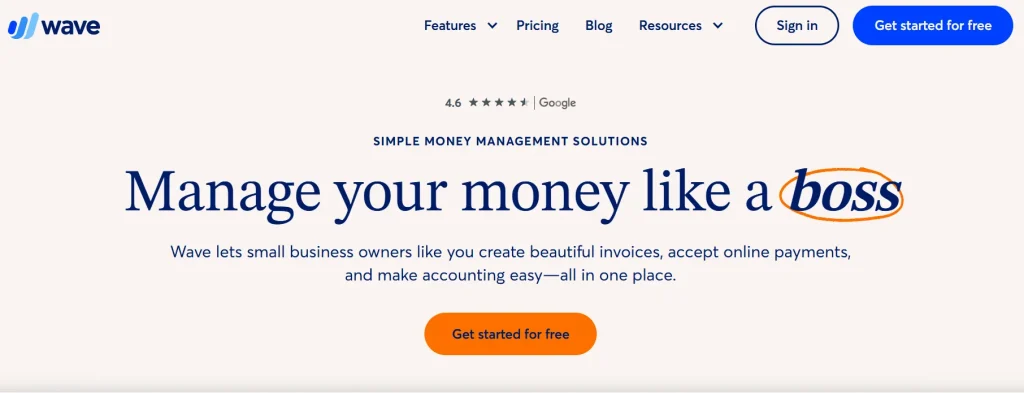
Wave is a free, beginner-friendly cloud accounting solution designed for entrepreneurs, freelancers, and nonprofits. It offers core features like invoicing and bookkeeping at no cost.
Key Features:
- Free invoicing and bookkeeping
- Optional paid payroll and payments
- Visual reporting tools
- Mobile receipt capture
Who It’s For: Solo business owners and nonprofits that need basic accounting features.
Pros:
- 100% free for basic features
- Designed for non-accountants
Cons:
- Limited integrations and scalability
- No inventory features
Supporting Topics:
- When Wave is the right fit for small businesses
- Limitations of free vs paid accounting tools
6. Sage 50 cloud
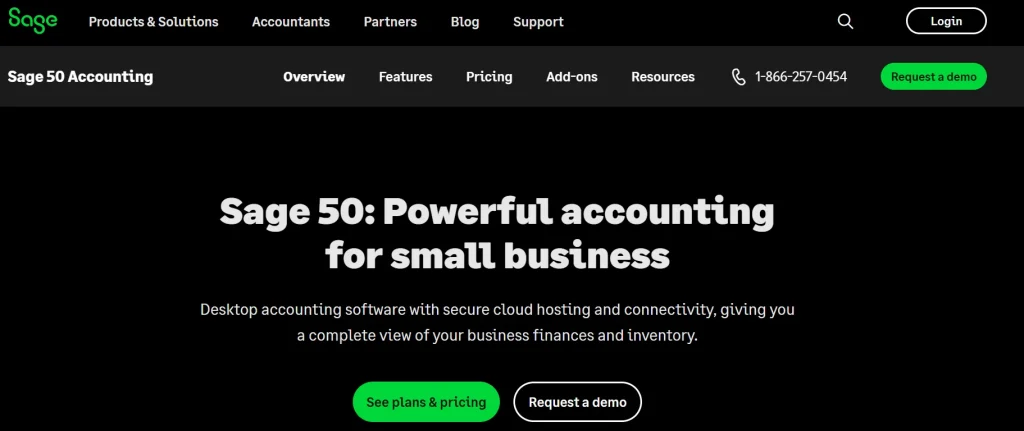
Sage 50cloud combines the reliability of desktop software with the convenience of cloud access. It’s built for companies with complex inventory and costing needs.
Key Features:
- Inventory and job costing
- Role-based access
- Hybrid desktop-cloud model
Who It’s For: Wholesalers, manufacturers, or retail operations.
Pros:
- Mature feature set
- Detailed financial reporting
Cons:
- Not beginner-friendly
- Dated user interface
Supporting Topics:
- Sage 50 vs Sage Business Cloud
- Using Sage for inventory-intensive operations
7. Kashoo
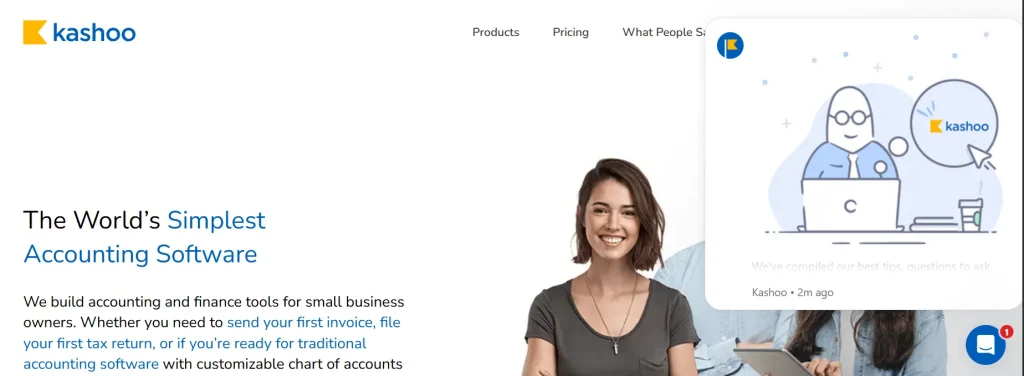
Kashoo is a simple and affordable accounting tool designed for small business owners who want stress-free bookkeeping with flat pricing.
Key Features:
- Simplified dashboard
- One-plan pricing
- Automatic bank feed imports
- Multi-currency support
Who It’s For: Entrepreneurs who want simple, no-fuss bookkeeping.
Pros:
- Predictable flat pricing
- Easy to set up and manage
Cons:
- Basic feature set
- Lacks advanced integrations
Supporting Topics:
- Is Kashoo ideal for beginners?
- How Kashoo supports eCommerce sellers
8. FreeAgent
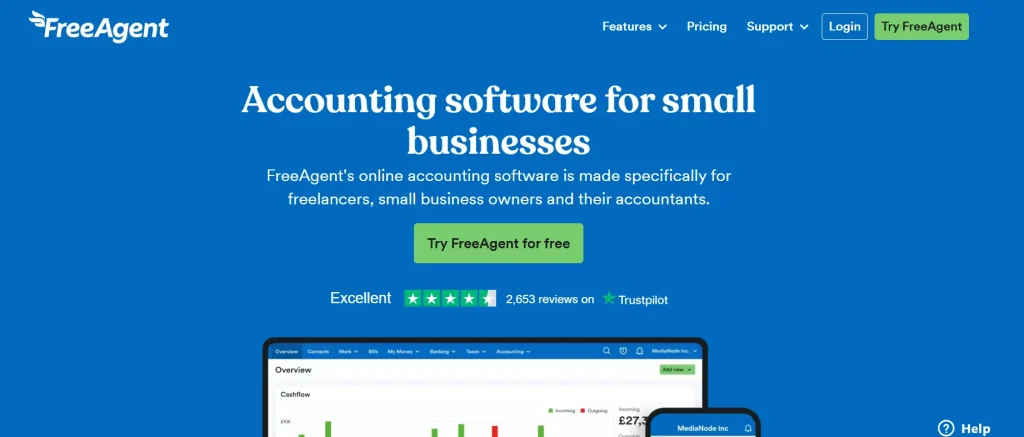
FreeAgent is a UK-based accounting platform that caters specifically to freelancers, contractors, and small businesses needing tax tools and bank feed tracking.
Key Features:
- Cash flow and tax projections
- Expense tracking
- Bank feed integration
- UK self-assessment tools
Who It’s For: Freelancers and very small businesses based in the UK.
Pros:
- Tailored for UK tax and compliance
- Friendly user experience
Cons:
- Less useful for non-UK users
Supporting Topics:
- FreeAgent’s top features for UK freelancers
- Real-time cash flow with FreeAgent
9. Patriot Accounting Software
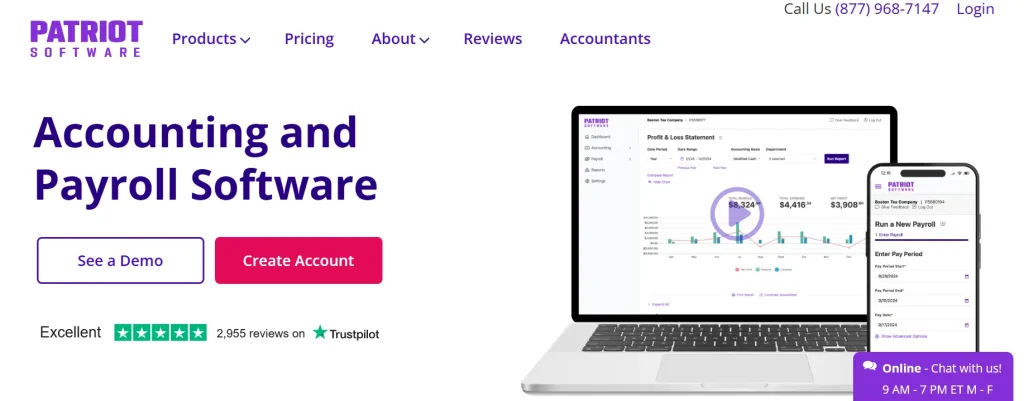
Patriot is a U.S.-based accounting and payroll platform known for its compliance features and affordable pricing, particularly useful for small teams.
Key Features:
- Payroll and accounting integration
- Payment tracking
- Fixed asset management
Who It’s For: US-based small businesses that need built-in payroll.
Pros:
- Compliant with U.S. tax regulations
- Simple interface for accounting and payroll
Cons:
- Only available in the U.S.
Supporting Topics:
- Comparing Patriot with Gusto
- Managing assets in Patriot
10. ZipBooks
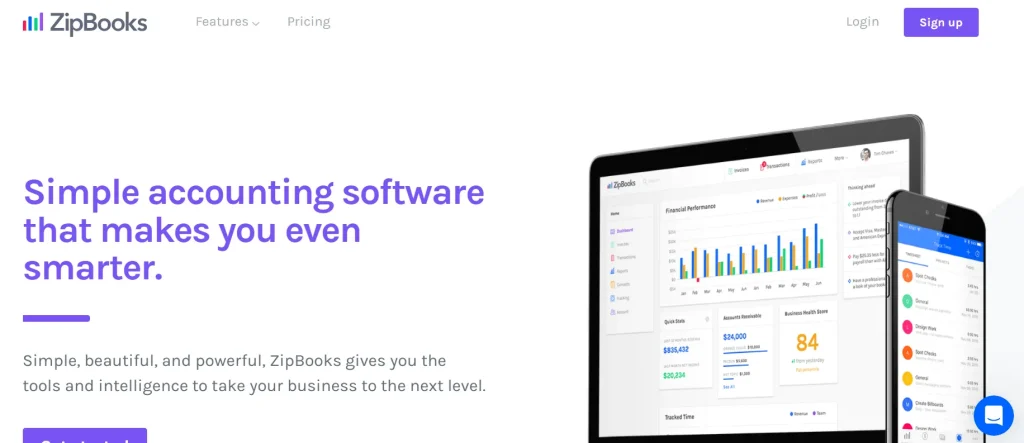
ZipBooks is a modern cloud accounting tool offering a free plan, visual dashboards, and smart features like machine learning tagging for reports.
Key Features:
- Free starter plan
- Visual dashboard with smart tags
- Reporting and basic CRM tools
Who It’s For: Startups and microbusinesses are looking for modern, low-cost accounting.
Pros:
- Easy to use with automation insights
- Clean, responsive interface
Cons:
- Limited tools in lower-tier plans
Supporting Topics:
- Using ZipBooks’ smart tagging for better insights
- Is ZipBooks a good fit for service-based businesses?
How to Choose the Right Cloud Accounting Tool
Not every tool fits every business—here are a few things to consider before making your decision:
- Business size and team structure: Solo, small team, or growing startup?
- Monthly revenue and transaction volume: Choose tools that scale with your cash flow.
- Location and compliance needs: Look for region-specific tax and reporting support.
- Key features required: Do you need payroll, inventory tracking, or client portals?
- Integration needs: Consider tools that connect with your CRM, POS, or eCommerce systems.
- Budget and pricing tiers: Weigh monthly cost against long-term value.
- Free trial availability: Use it to test the interface and features before committing.
Security, Compliance & Data Privacy
When managing financial data in the cloud, security and compliance should be a top priority.
- Data encryption: Make sure the platform uses bank-level encryption to protect sensitive information.
- Automatic backups: Look for tools that back up your data regularly and securely.
- Access controls: Choose software that lets you set user roles and permissions.
- Regional compliance:
- US – GAAP (Generally Accepted Accounting Principles)
- UK – Making Tax Digital (MTD)
- India – GST reporting and e-invoicing
- EU – GDPR for data privacy and user consent
Final Recommendations
- Best all-in-one: QuickBooks or Xero
- Best for freelancers: FreshBooks or Wave
- Best for India: Zoho Books
- Best free: Wave or ZipBooks
- Best for product businesses: Sage 50
Conclusion
Choosing the right cloud accounting software can make a big difference in how smoothly your business runs. Whether you need simple invoicing or advanced financial reporting, there’s a tool out there built for your needs and budget.
Take advantage of free trials, explore integrations, and think about how the software will grow with your business. The best choice is the one that saves you time, keeps your finances organized, and helps you focus more on running your business, not just tracking it.
FAQs
What is the most affordable cloud accounting software?
Wave and ZipBooks offer free plans, making them the most budget-friendly options for basic needs.
Can I switch from Excel to cloud accounting?
Yes. Most platforms let you import data from Excel or CSV files during setup.
How safe is my financial data in cloud software?
Reputable providers use bank-level encryption, secure servers, and role-based access to protect your data.
Is cloud accounting better than desktop accounting?
For most small businesses, yes. Cloud tools offer easier access, real-time updates, and automatic backups without manual software installs.


